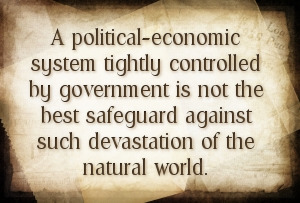A Biblical Perspective on Environmentalism: Man's Rule (2)
 Reprinted with permission from As I See It, which is available free by writing to the editor at dkutilek@juno.com. Read the series so far.
Reprinted with permission from As I See It, which is available free by writing to the editor at dkutilek@juno.com. Read the series so far.
Hunting and fishing
There are two means of obtaining animal flesh for human consumption—hunting/fishing, and domestication. Hunting, an essential widespread practice in the first years of European settlement in the New World, and the universal practice of the native American populace, has been given a bad rap in contemporary American society, in part fueled by such emotionally inflammatory propagandistic fare as the Disney movie Bambi in which the helpless fawn is orphaned by a hunter’s bullet (see similarly the book The Yearling by Marjorie Rawlings). In reality, modern hunting laws commonly prevent taking game during the rearing season before the offspring are capable of surviving on their own, so the story has an essentially faulty premise. Not only so, but in fact, hunting has become essential in our day to maintain the over-all health of several species.
 Reprinted with permission from
Reprinted with permission from 
 Reprinted with permission from
Reprinted with permission from  Reprinted with permission from
Reprinted with permission from  Reprinted with permission from
Reprinted with permission from 
Discussion